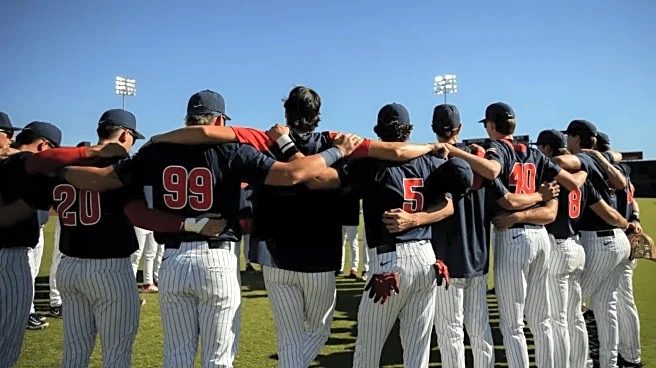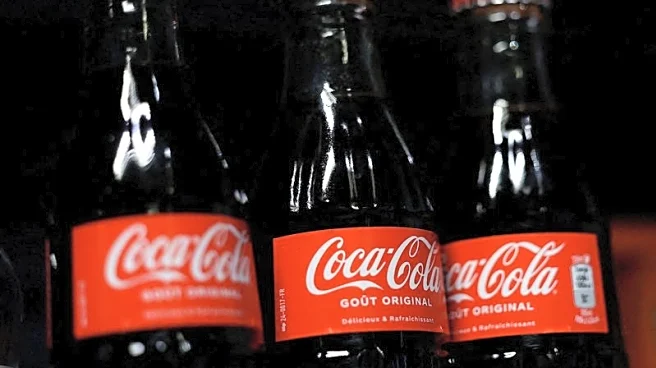What's Happening?
Terry Bradshaw expressed disapproval of the Dallas Cowboys' recent trade for New York Jets defensive tackle Quinnen Williams. The trade involved the Cowboys giving up two draft picks, a 2026 second-round
pick and a 2027 first-round pick, along with defensive tackle Mazi Smith. Bradshaw, speaking on 'FOX NFL Sunday,' argued that the Cowboys should have retained their draft capital, especially given their current standing in the league. He compared the situation to the Herschel Walker trade in 1989, suggesting that the Cowboys might not be in a position to win the Super Bowl despite acquiring Williams. The trade aims to bolster the Cowboys' defense, which has been struggling this season.
Why It's Important?
The trade for Quinnen Williams is significant as it reflects the Cowboys' strategy to strengthen their defense, which has been underperforming. Williams, an All-Pro and Pro Bowler, is expected to enhance the team's defensive capabilities. However, the decision to trade valuable draft picks raises questions about the team's long-term planning and potential to compete for a Super Bowl. Bradshaw's criticism highlights concerns about the balance between immediate improvements and future prospects, which could impact the Cowboys' performance and strategy in upcoming seasons.
What's Next?
The Cowboys will need to assess the impact of Williams on their defense and overall team performance. As they sit at 3-5-1 during their bye week, the team may need additional changes to become Super Bowl contenders. The trade also leaves the Cowboys with fewer draft picks, which could affect their ability to build a strong team in the future. Stakeholders, including fans and analysts, will be watching closely to see how the Cowboys manage their roster and draft strategy moving forward.
Beyond the Headlines
The trade for Quinnen Williams could have broader implications for the Cowboys' organizational strategy and decision-making processes. It raises questions about the influence of team owner Jerry Jones in trade decisions and the potential risks of prioritizing immediate gains over long-term stability. The move also reflects the competitive pressures within the NFL, where teams must balance short-term success with sustainable growth.











